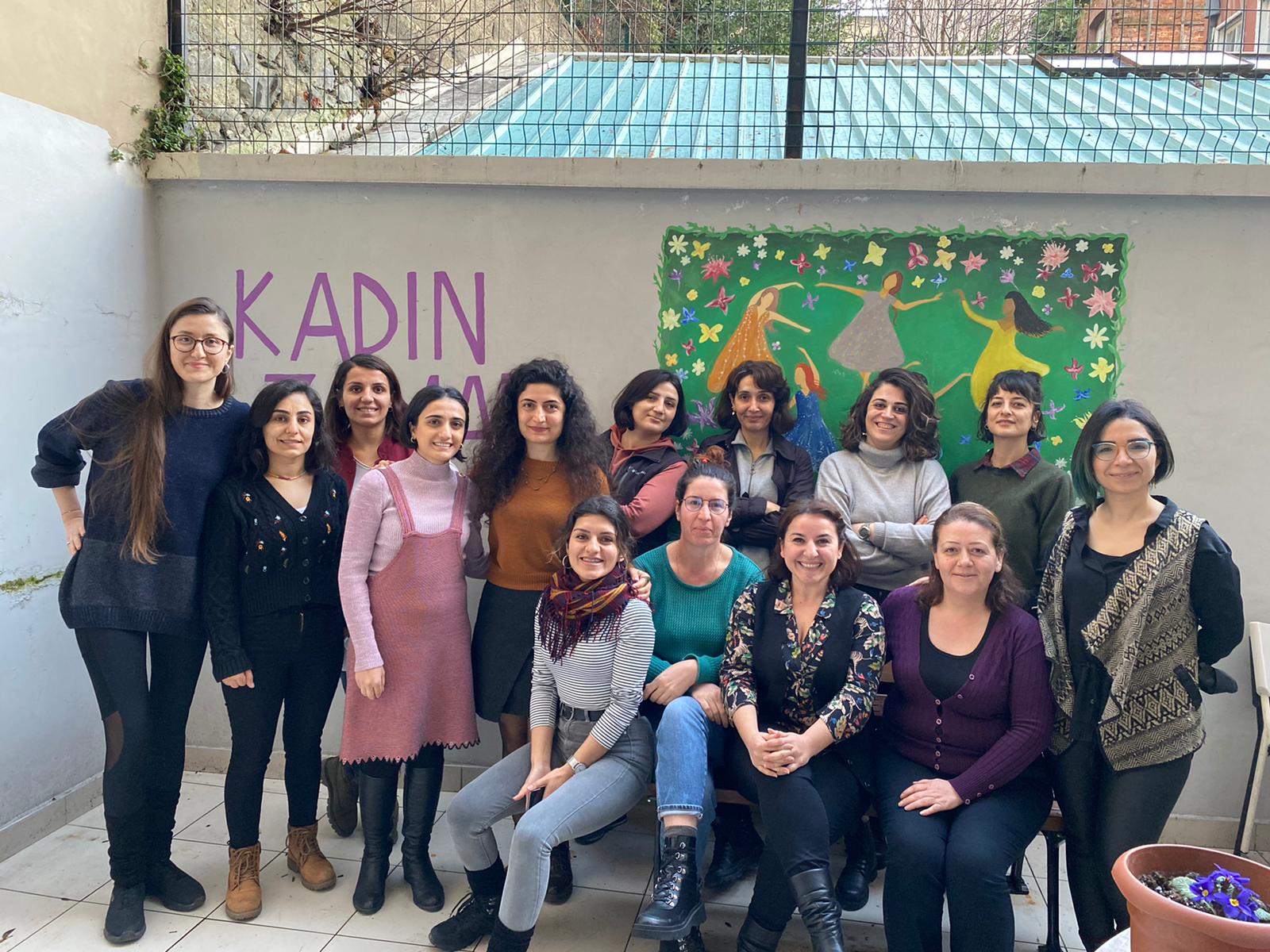
A Platform for Women to Connect, Act, and Transform
In July 2020, at a time when pressures on civil society in Türkiye were steadily growing, a group of women in Istanbul came together to imagine something different. They weren’t interested in offering temporary fixes. They wanted to create a space where women, especially those excluded because of their ethnicity, language, or economic background, could find lasting support, solidarity, and power. That is how the Kadın Zamanı Association was born.
“We’re not just here to support women,” says Berivan Saruhan of the Kadın Zamanı Association. “We meet them where they are — in their neighbourhoods, in their reality, and we build something together, step by step.”
From the beginning, the Association positioned itself as more than a service provider. It was a platform for action, grounded in the belief that women know what they need — they need access, space, and trust. The organisation’s work is built around four interconnected areas: direct counselling and support, research into violations of women’s rights, grassroots advocacy, and community-based services through its Women’s Counselling Centre. What ties it all together is a consistent focus on reaching women who are most often pushed to the margins, particularly Kurdish women living in large cities like Istanbul.
“Kurdish women face dual discrimination,” Berivan explains. “As women, and as ethnic minorities. If they don’t speak fluent Turkish — or feel unsafe using Kurdish — they’re often shut out of hospitals, courts, and state services. Add poverty and isolation, and the barriers multiply.”
Kadın Zamanı responds to this reality not only by offering services in both Kurdish and Turkish, but also by going to the places where these women live. Many of the women the Association supports reside in remote, underserved neighbourhoods with little access to public transportation or institutional outreach. Through fieldwork, community events, and local workshops, the Association brings information, support, and connection directly to them. They offer legal, psychological, and social assistance, and provide a space where women can gather — not only to receive help, but to share stories, ask questions, and build strength together.
“When a woman is able to speak in her own language, she communicates more safely, more fully,” says Berivan. “It’s not just about language — it’s about dignity.”

But the work goes beyond individual support. Kadın Zamanı creates safe, collective spaces where women can share experiences and develop peer support networks. They organise seminars on laws like 6284, which provides protection for survivors of domestic violence. They hold storytelling events, panel discussions, and documentary screenings that make visible the lived experiences of Kurdish women in Türkiye and challenge the structural barriers they face.
“What we’re doing is long-term work,” says Berivan. “It’s about changing how women see themselves and how they’re seen by others. That doesn’t happen in a day. It happens through building trust and standing by each other over time.”
That commitment to depth over speed has shaped how Kadın Zamanı chooses its partners. When the Association joined the EU-funded Support for Rights project, implemented by Hafıza Merkezi and Heinrich Böll Stiftung, it wasn’t just about securing a grant. It was about finding alignment with values, working style, and vision.
“We apply for many grants,” Berivan says, “but few of them actually match the way we work. This one did — and it helped us do more than just complete a project. It helped us grow in ways that will last.”
The support allowed the Association to strengthen its human resources and technical infrastructure. They developed a more systematic and accessible bilingual support system. They received institutional development training in areas like staff development, digital security, and data management, building strategic capacity for the future.

Most importantly, the project enabled them to create a data-based system to document women’s rights violations. This has already improved their advocacy, both with public institutions and on national and international platforms. It also deepened trust with the women they serve. As Berivan notes, when women see that their experiences are being taken seriously, not just heard, but recorded, protected, and used to make change, they feel safer coming forward.
Thanks to this project, Kadın Zamanı has moved beyond short-term, project-based work. It now operates with a clearer, long-term impact vision—one that includes financial sustainability, strategic planning, and strengthened ties with other rights-based organisations. Their partnerships have grown, and so has their visibility. The relationship with Hafıza Merkezi, in particular, became more than a funder–grantee dynamic. It became a collaboration rooted in mutual respect.
“This support helped us become more confident in our decisions,” Berivan says. “It allowed us to plan with intention, to dream further, and to keep showing up for women who are still being left out.”
For Kadın Zamanı, success isn’t about numbers or media campaigns. It’s about women who once stayed silent now taking the mic at a workshop. It’s about women finding each other and finding strength in that connection. It’s about meeting women where they are — and walking with them, until they’re ready to lead.
“Our strength,” Berivan reflects, “is not just what we offer. It’s in how we build trust. In how we continue to exist . In how we listen.”
As Türkiye’s civil space becomes more constrained, Kadın Zamanı continues to hold space quietly, confidently, the kinds of transformation that only grow through care, commitment, and community.
